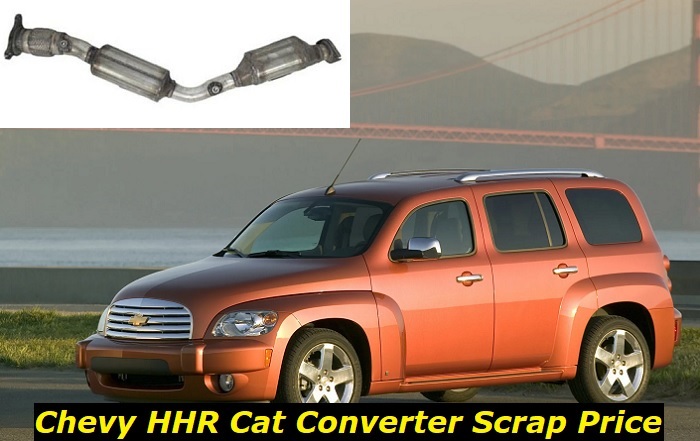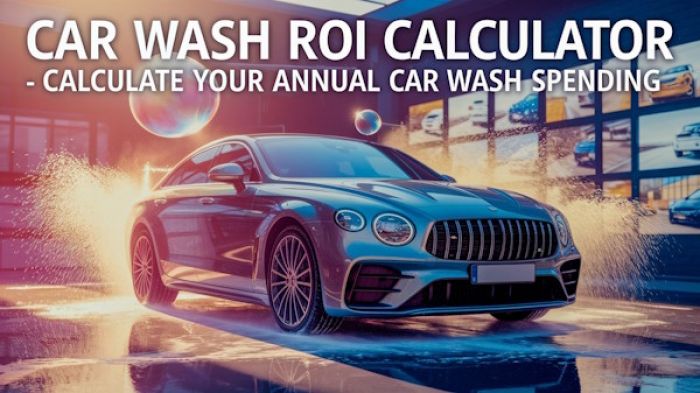Chevrolet made its well-known HHR model in 2005 and was manufacturing it up until 2011. The vehicle came in one generation and was discontinued after its sales dropped dramatically. The company wanted to get inspiration from old legendary Chevy models to build a new and up-to-date compact car but the brand failed to market it well.
Today, we'll be talking about catalytic converters you may find in your HHR. What's their scrap price and who can you sell them to and get more money? To answer this question, we'll need a proper explanation of the model's equipment and some remarks about the market for used cat converters in America.

Here's what we'll be talking about:
- Chevy HHR cat converters - some facts you should know.
- How much should an old cat converter from the HHR cost?
- Will you be able to sell your cat at a good price?
- What kind of replacement converter should you buy for the HHR?
Let's get started!
What types of converters are installed in the Chevy HHR?
You may know that the type of converters highly depends on the type of engines in your vehicle. The HHR model came equipped with three types of inline-4 Ecotec engines: 2.0, 2.2, and 2.4. All of these engines had basically the same type of cat converters installed in the exhaust system with two main cat converters in the assembly.
Some models also had pre-cats of small size, but to sell them at a good price will not be that easy. Also, you should bear in mind that most HHRs are now high-mileage and old cars, so their cats may have been replaced by aftermarket ones. This will dramatically affect the possible price you can get when selling these converters.
Here's what you should know about these parts:
- the Chevy HHR uses simple GM catalytic converters of small size which are not very valuable, but there are two of them in the system;
- the main cats are located in the exhaust pipe one after another, they are placed between the exhaust manifold and the muffler;
- the cat converters are very durable and reliable, you will not have problems with them up until 120,000 or even 150,000 miles;
- but no cat converter is eternal, so sooner or later they both will require replacement;
- usually, the first cat to ask for a replacement is the one that is located near the exhaust manifold, but it's not the strict rule;
- both converters are identical, they contain ceramic honeycombs with some precious metals applied in them to catalyze the toxic emissions;
- when the converters are clogged or damaged, you will not be able to pass the annual emission test.
Even if these converters will live to 200,000 miles, you will need to replace them if you still want to use your vehicle. The question is what exactly can you do with those old rusty converters you now have in your hands? Of course, you should sell them because why do you need them in your garage?
Usually, when people get out of exhaust shops with their old cat converters in trunks, they just don't know what to do. The first thought they have is to go to the nearest scrapyard and just get some cash for these old parts. But it's certainly not the best idea that can come to your mind.
How much can an old Chevy HHR converter cost?
This converter will be initialized as a "domestic small" converter, so one cat will not be very expensive - just about $120 to $150 for each cat. But if you are going to sell the whole assembly, you are likely to get about $300.
You may wonder why we are talking about $300 if your local scrapyard offered you just $50 for each converter! And we can answer this question in the following paragraphs of this article.
But first, let's see what can affect the offered price for your catalytic converter:
- first of all, prices for the precious metals (platinum, palladium, and rhodium) are important and will affect the offers;
- also, the condition of your cat is really important - you may notice that shabby rusty cats are not sold at a really good price;
- in your case, the year and the serial number on the cat won't change anything because all HHRs had the same type of cats in their systems;
- the origin of the cat is really important - aftermarket converters will just cost about $30 each, so only OEM cats are good to sell;
- your buyer is an important factor - don't sell a converter to anyone who offers less than $120 for the OEM Chevy HHR cat.
Your Chevy HHR doesn't have a really precious catalytic converter in its exhaust system, but it still can be sold for some money. And when you need to replace the cat converter with something, this money will obviously help you.
You should know that there is nothing much you can do to make your cat converters more expensive. You can't change their condition, serial numbers, size, or the weight of precious metals inside. But what you may change is the way you sell your converters.
Who you can sell your Chevy HHR cat converters to?
One of the most obvious ways to sell a cat is just to find some place or person that buys these cats. But, in most cases, Americans just lose their money this way. They find some resellers who offer them twice less money as they can actually get. This way, you'll be able to just buy some beer after selling your converter. But you may do much better!
For this, you should know who can buy your catalytic converter that was taken off the Chevy HHR:
- Scrapyards. We personally think this is a bad way to sell an old cat. These companies only offer little money for the cat and you can find much better options.
- Resellers. There are a lot of middlemen who can buy your cat for cash and then resell it to a recycling company. Their offers may be better than in scrapyards, but not a lot better.
- Exhaust shops. Sometimes, a mechanic who provides you with all the replacement labor can offer you a discount for your old converter. This is very convenient but usually not very lucrative.
- eBay. You can sell your cat to private buyers if the converter is still working and can pass the fog test. A good idea but it certainly doesn't suit all people.
- Recycling companies. A very good option - our top advice for you. These companies pay much more and they even pay for shipping, in most cases.
So, you can sell your catalytic converter directly to a recycling company. Previously, these companies only bought a lot of scrap cats at once and a private seller couldn't sell one or two cats to them. But now it's possible thanks to their developed websites.
You shouldn't just use one website and accept the offer of one company. Compare offered prices - use three or four companies and ask them to estimate the price for your cat. You will need to give them some details and attach a picture of the converter. After that, you can compare the offered prices and sell the converter to the most generous company.
Will you need a replacement cat for the Chevy HHR?
Yes, you will certainly need a replacement because after you cut off the old converter, there is a big hole in the exhaust system. Your Chevy will roar like an ill lion even when idling. Not cool at all and sometimes even illegal.
You will need a replacement catalytic converter if your state demands a yearly fog test. If there is no emission test in your area, you can install a metal tube to cope with the flame and save the muffler.
Here's what you can choose from:
- a new OEM catalytic converter will be the best decision, but it's also the most expensive option;
- the aftermarket cats are also available, they are cheaper but not as efficient and not very durable;
- the used OEM cats are there on eBay, but you can't predict how long they are going to go;
- a metal tube instead of a converter is a good option for those who don't need to pass the fog test annually.
Choose wisely because the price difference may be devastating. For example, the assembly of the new OEM cat converters for the Chevy HHR may cost up to $2,200 and this will not even include labor!
Final words
Your Chevy HHR OEM catalytic converter is the thing you can sell. It will not bring you thousands of dollars, but it may compensate for some expenses you'll be having when replacing the old cat converter.
We've offered you some ways to learn about the up-to-date prices for your scrap converters and also to sell these cats as soon as possible. Just choose the proper way and follow the guidelines above to get it all done!
About the authors
The CarAraC research team is composed of seasoned auto mechanics and automotive industry professionals, including individuals with advanced degrees and certifications in their field. Our team members boast prestigious credentials, reflecting their extensive knowledge and skills. These qualifications include: IMI: Institute of the Motor Industry, ASE-Certified Master Automobile Technicians; Coventry University, Graduate of MA in Automotive Journalism; Politecnico di Torino, Italy, MS Automotive Engineering; Ss. Cyril and Methodius University in Skopje, Mechanical University in Skopje; TOC Automotive College; DHA Suffa University, Department of Mechanical Engineering






Add comment